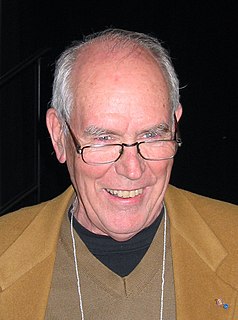A Quote by Margaret J. Wheatley
Yet we act as if simple cause and effect is at work. We push to find the one simple reason things have gone wrong. We look for the one action, or the one person, that created this mess. As soon as we find someone to blame, we act as if we've solved the problem.
Related Quotes
All men, and all created nature, have been at work, from the beginning of time to this day, to produce the circumstances which now influence our actions. AS soon as an act has been performed, it becomes independent of the individual performing it, and forthwith gives birth to some other act, which last gives birth to still another, and so they continue, and will continue, until the law of cause and effect shall cease to operate.
To a crisis of the spirit, we need an answer of the spirit.
To find that answer, we need only look within ourselves.
When we listen to the better angels of our nature, we find that they celebrate the simple things, the basic things--such as goodness, decency, love, kindness.
Greatness comes in simple trappings.
Giving is a miracle that can transform the heaviest of hearts. Two people, who moments before lived in separate worlds of private concerns, suddenly meet each other over a simple act of sharing. The world expands, a moment of goodness is created, and something new comes into being where before there was nothing... But true giving is not an economic exchange; it is a generative act. It does not subtract from what we have; it multiplies the effect we can have in the world.
The problem with deterrence - apparently sometimes forgotten by our former presidents - is that it is not static, but a creature of the moment, captive to impression, and nursed on action, not talk. It must be maintained hourly and can erode or be lost with a single act of failed nerve, despite all the braggadocio of threatened measures. And, once gone, the remedies needed for its restoration are always more expensive, deadly - and controversial - than would have been its simple maintenance.






































